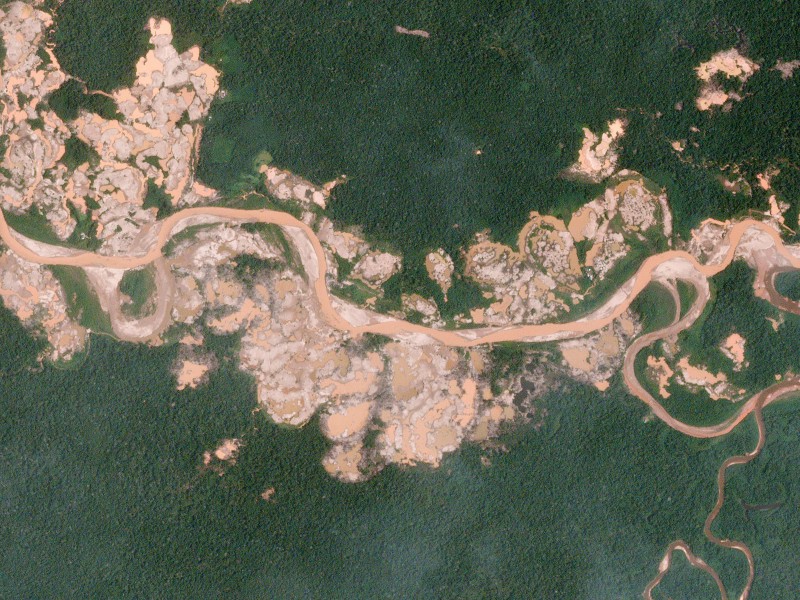Planet Labs is indexing physical changes on Earth the same way Google indexes text on the Internet, helping businesses and humanitarian causes.
The company has so far sent some 300 miniaturized satellites into low orbit. Today, around 200 of them continually photograph the 57.3 million square miles of Earth’s land mass, sending back high-resolution images of the Earth every day.
The idea is to make global change visible.
“What we are helping people to see is all the change that happens.” says Planet Labs Co-founder and CEO Will Marshall. “ You can’t fix what you can’t see. With our images you can stop illegal deforestation and illegal mining as soon as it starts.”
 Satellite images from Planet Labs show how an illegal mining operation in Peru encroached on the Tambopata National Reserve, a protected forest.
Satellite images from Planet Labs show how an illegal mining operation in Peru encroached on the Tambopata National Reserve, a protected forest.Planet Labs has customers in energy, infrastructure, farming, forestry, insurance, and defense and business intelligence. But it is also providing images to non-governmental agencies such as the United Nations and the U.S.’s Federal Emergency Management Agency (FEMA) to help with disaster response.
“We started Planet because of its potential to aid humanitarian causes and then we realized that the best way to have that impact and be sustainable — was to develop a highly profitable business model,” says Marshall, a scientist who previously worked at NASA.
“We feel good about the fact that we are doing humanitarian stuff,” he adds. “But we also have a very, very strong business case and some new emerging markets for us are going to be very exciting. “ One new area is finance. “With our images we can tell the output of copper mines or the levels of the world’s oil drums, the number of ships in all the port’s ships or the activity of the world’s soy fields. This is valuable for the people betting on all the world’s commodities. This is going to be a massive market for us. “
Marshall says building Planet Labs has convinced him that “you can build companies that have tremendous business and humanitarian impact, these two things can very synergistic.”






